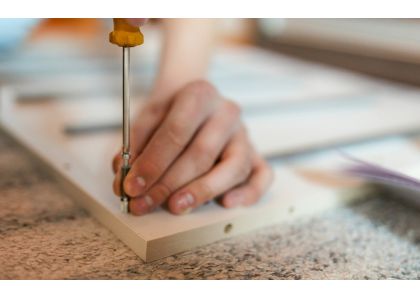
Classification by Shape and Purpose
Hex Head Screws: With a hexagonal head, they are ingeniously designed for easy tightening or loosening and are commonly used in construction and mechanical industries.
Countersunk Screws: Featuring a unique head design, they can be embedded into materials to keep the surface smooth and aesthetically pleasing, making them ideal for applications where appearance is crucial.
Round Head Screws: With a circular head, they are suitable for general component connections.
Square Head Screws: Known for their high-strength fixing ability, they are often used in bridge and heavy equipment construction.
Flat Head Screws: Also with a circular head, they are suitable for surfaces that need to remain flat, such as furniture manufacturing and decoration projects.
Oval Head Screws: With a head design between round and flat, they balance aesthetics and practicality.
Hex Socket Screws: Their heads are hexagonal and require a special hex socket wrench or key for tightening. They are commonly used in the manufacturing of precision instruments and mechanical equipment.
Classification by Slot Type
Cross Slot Screws: With a cross-shaped head and slot, they are suitable for applications requiring high torque and are very common in electronics and mechanical fields.
Slotted Screws: Operated with a slotted screwdriver, they are more common but less secure than cross slot screws, making them suitable for applications where tampering needs to be prevented.
Hex Socket Screws: Tightened with a special hex wrench, they are often used in mechanical equipment and provide excellent fastening performance.
Pozi Screws: Their screwdriver heads have parallel sides, making them particularly suitable for high-torque applications.
Torx Head Screws: These screws offer higher torque levels and lower axial force, making them ideal for the manufacturing and fastening of precision instruments.
Classification by Thread Type
Triangular Thread Screws: With a triangular thread shape, they are highly suitable for high-strength connections, such as in bridge and building structural supports.
Trapezoidal Thread Screws, Rectangular Thread Screws: Each has unique characteristics and application areas.
Conical and Square Thread Screws: 60-degree conical angle screws are often used for joining and locking operations and perform well in high-strength connection scenarios. Pipe thread screws with a 55-degree conical angle are also suitable for joining and locking tasks. Trapezoidal thread screws have a 30 or 29-degree conical angle and are more focused on power transmission, commonly used in scenarios requiring efficient power transmission. Square thread screws, known for their 90-degree conical angle, are mainly used in power transmission systems.
Self-tapping Thread Screws: They can directly form threads in materials and are ideal for use in non-metallic materials such as wood and plastic.
Fine Thread Screws and Coarse Thread Screws: The former is an ideal choice with a smaller pitch, providing precise adjustment capabilities. The latter is renowned for its high strength and ability to withstand heavy loads, commonly used in heavy equipment.
Classification by Application and Material
Application Areas
Machine Screws: Specifically designed for connecting metal parts, their ends are rounded and they are fastened together with nuts.
Self-tapping Screws: These screws are hard and particularly suitable for self-tapping in metal holes. They come in pointed and flat ends and are ideal for connecting thin metal sheets.
Wood Screws: Specifically designed for solid wood objects, their sharp tips can easily penetrate wood.
Drywall Screws: Used to securely fix drywall materials to wooden or metal studs, they are available in coarse and fine threads.
Self-drilling Screws: Equipped with a built-in drill bit, they can self-tap and are efficient and convenient, saving time and effort.
Expansion Screws: Utilizing the friction force generated by a wedge angle for fixation, they are suitable for various materials.
Positioning Screws: Used to fix the relative positions of machine parts, they are securely fastened in threaded holes to hold parts in place on another part. Security screws: Made of stainless steel, featuring a tamper-proof hexagonal pin drive, suitable for various applications.
Special material designs
Low-carbon steel screws: General-purpose material, economical in price.
Stainless steel: Corrosion-resistant, suitable for various environments.
Aluminum alloy: Light but with high strength.
Brass: Wear-resistant, suitable for sliding parts.
Bronze: Particularly suitable for sliding parts.
Special design screws: Such as socket screws, ear screws, high-temperature screws and drill-point screws, play an important role in specific applications.